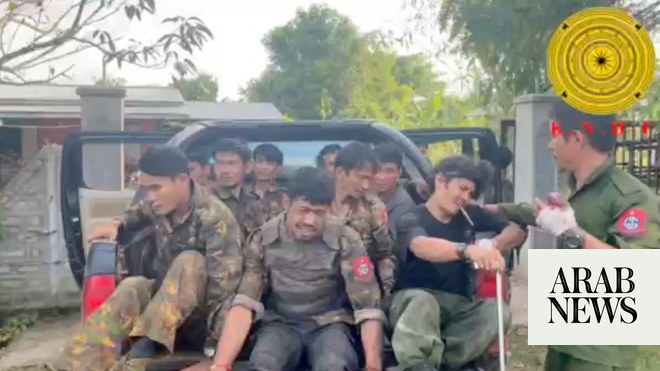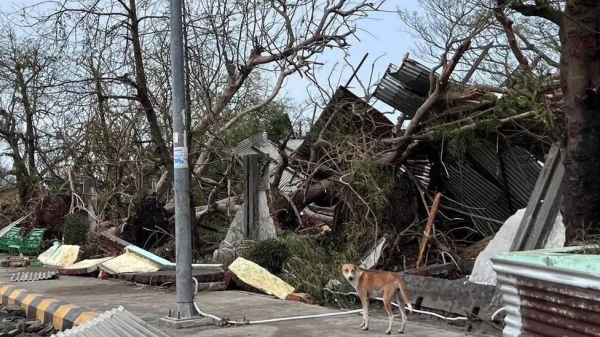
Armed conflict has escalated following internet restrictions in the country
YANGON: As internet services remain inoperative in Myanmar’s restive Rakhine state, which has emerged as the country’s coronavirus disease (COVID-19) hotspot, non-governmental organizations (NGOs) helping internally displaced people fear a bigger outbreak with information unavailable and curfews imposed on Wednesday, further hampering responses to new cases.
The internet has been unavailable in Rakhine for more than year amid military operations against the Arakan Army, the largest rebel group in the region. Although access was officially restored in early August, locals say it is too slow for communication as 3G and 4G services remain restricted.
The state was put on semi-lockdown and under nighttime curfew when it recorded 96 new COVID-19 cases on Wednesday, bringing its total tally to 205 — a third of Myanmar’s infection figures as of Friday.
“We need firsthand information so that we could act timely, but sadly we don’t have much option to obtain it,” said Tun Tha Sein, a lawmaker from Mrauk-U, one of the state’s seven townships.
He told Arab News that, amid restrictions, he had to rely on TV and radio to learn what was happening in his own town, which has 26 makeshift camps housing nearly 2,000 people displaced by the fighting between the Arakan Army and security forces.
“The first three confirmed patients here are NGO staff helping displaced persons in the camps. Just days before they tested positive, they visited camps,” Sein told Arab News by phone on Thursday, adding that he fears a large-scale outbreak may already be underway in the camps, where overcrowding and substandard housing make social distancing impossible.
Mrauk-U residents say that they only learned about the outbreak from outside sources.“I was confused when a friend in Yangon phoned me asking about the newly confirmed COVID-19 cases here. I didn’t know it,” Myat Naing, who lives in the city, told Arab News by phone.
FASTFACT
The internet has been unavailable in Rakhine for more than year amid military operations against the Arakan Army, the largest rebel group in the region.
In Sittwe, the capital of Rakhine, which is the COVID-19 epicenter with 137 reported cases, new restrictions might exacerbate the outbreak.
Camps for the internally displaced in the city shelter about 100,000 Rohingya who have fled communal violence.
Abdul Kyaw Kyaw, a Rohingya in Sittwe’s Thae Chaung camp, said they have no face masks or hand-washing stations. “We have nothing to protect ourselves from the infection.
“We rely mostly on NGOs. We are afraid that new lockdown measures could restrict their work and affect our lives,” he said.
Local community groups are trying to establish communication channels with more than 100 camps for the displaced across the state through radio as calls for the restoration of high-speed internet have been ignored by the government.
The Rakhine Ethnic Congress (REC), a community-based group in Rakhine, on Thursday launched “Radio – Rights for Information,” a campaign to provide radios to each of the camps.
“We are going to provide 10 radios per camp, and we would need more than 1,000 radios to feed internally displaced people information about the COVID-19 infection so that they could act accordingly,” The REC’s secretary, Zaw Zaw Tun, told Arab News.
The government’s internet restrictions, he said, were not only jeopardizing the fight against COVID-19, but also concealing human rights violations by the military in the armed conflict with the Arakan Army, which has escalated since the interned was blocked in June 2019.
“During the internet ban, we have recorded more than a hundred rights violations in Rakhine state, mostly committed by government soldiers,” he said. “So we have no more questions why the government continues internet restrictions here.”












